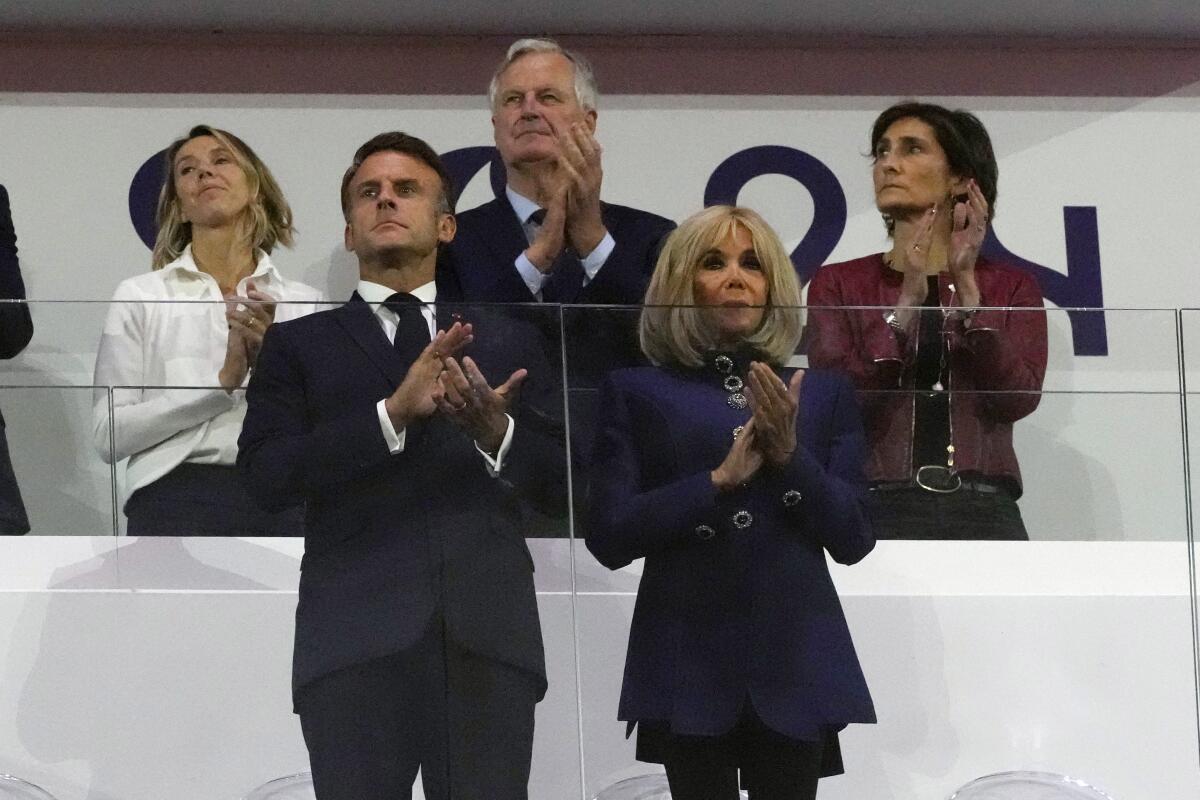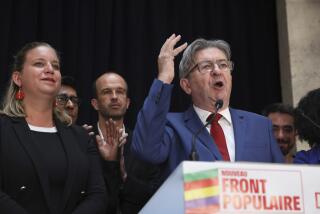In France, a new center-right government is announced two months after divisive elections

PARIS — The French presidential palace on Saturday unveiled a new government dominated by conservatives and centrists. It came more than two months after elections that produced a hung parliament and deepened political divisions as France grapples with growing financial and diplomatic challenges.
A left-wing coalition secured the most seats in June-July parliamentary elections but failed to win a majority. Student groups and activists from the hard-left France Unbowed party held protests around the country Saturday against a government they say rejects the voters’ will.
The left-wing New Popular Front alliance surprised many by winning the most seats in the risky snap elections that Macron called in the wake of a far-right victory in European Parliament elections.
But the New Popular Front was not given a chance to form a minority government, and refused to make concessions and join a more left-leaning government alliance.
President Emmanuel Macron named conservative Michel Barnier as prime minister earlier this month even though Barnier’s Republicans party had a poor showing in the elections, and Barnier put together the government after difficult negotiations. Macron approved, and it was announced at the presidential palace.
France’s voters denied the far right an expected election victory. But neither the left nor the center won an absolute majority. Deadlock will likely follow.
Marine Le Pen ‘s far-right anti-immigration party National Rally has no seats in Barnier’s government, but has enough votes in parliament to bring it down. The party won an indirect victory with the appointment of staunch conservative Bruno Retailleau as new interior minister, whose remit includes critical domestic issues like national security, immigration and law enforcement.
The makeup and direction of France’s government is important because the country is a leading voice in European Union policy, among the biggest world’s economies and a nuclear-armed, veto-wielding member of the U.N. Security Council.
In Europe, there’s relief over a strong standard-bearer facing Trump. A Kamala Harris win would represent continuity, with some potential curveballs.
The 39-member Cabinet includes primarily ministers from Macron’s centrist alliance and the conservative Republicans.
Jean-Noël Barrot, a centrist politician known for his work in digital transformation and European affairs, is the new foreign minister. He brings extensive experience in navigating complex international issues notably within the EU.
The new finance minister is Antoine Armand, an emerging figure in French politics now tasked with managing the upcoming 2025 budget amid pressure from Brussels to address France’s mounting debt.
Trump’s running mate, J.D. Vance, once said: ‘I don’t really care what happens to Ukraine one way or the other.’
Sébastien Lecornu retains his post as defense minister. He has been instrumental in bolstering France’s military capabilities, including modernizing defense systems and managing military aid to Ukraine. His leadership in defense will be crucial as France navigates its role within NATO and handles rising geopolitical tensions over the wars in Ukraine and the Mideast.
Barnier’s ability to govern effectively is already under scrutiny, with his political opponents on the left vowing to challenge him at every turn and the far right saying it will monitor the government closely.
The 73-year-old political veteran known for his role as the European Union’s Brexit negotiator is no stranger to complex political tasks, but forming a government that can survive in such a divided parliament will test him. Barnier’s first major political test will come Oct. 1, when he is set to deliver his general policy speech to the National Assembly.
Adamson writes for the Associated Press. AP writer Angela Charlton in Paris contributed to this report.
More to Read
Sign up for Essential California
The most important California stories and recommendations in your inbox every morning.
You may occasionally receive promotional content from the Los Angeles Times.













